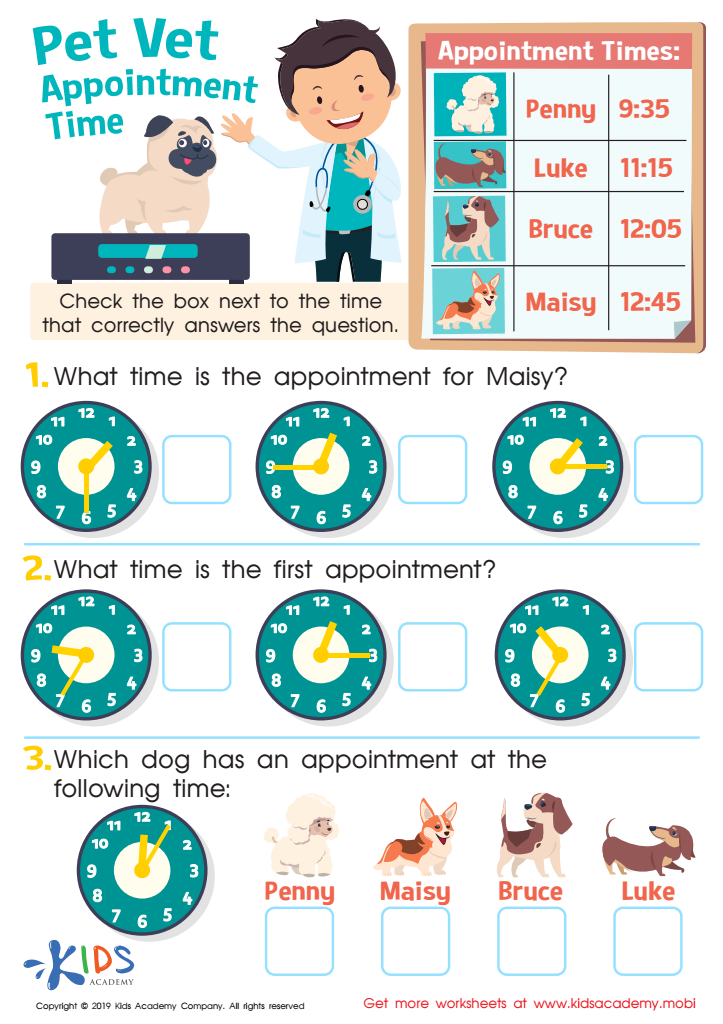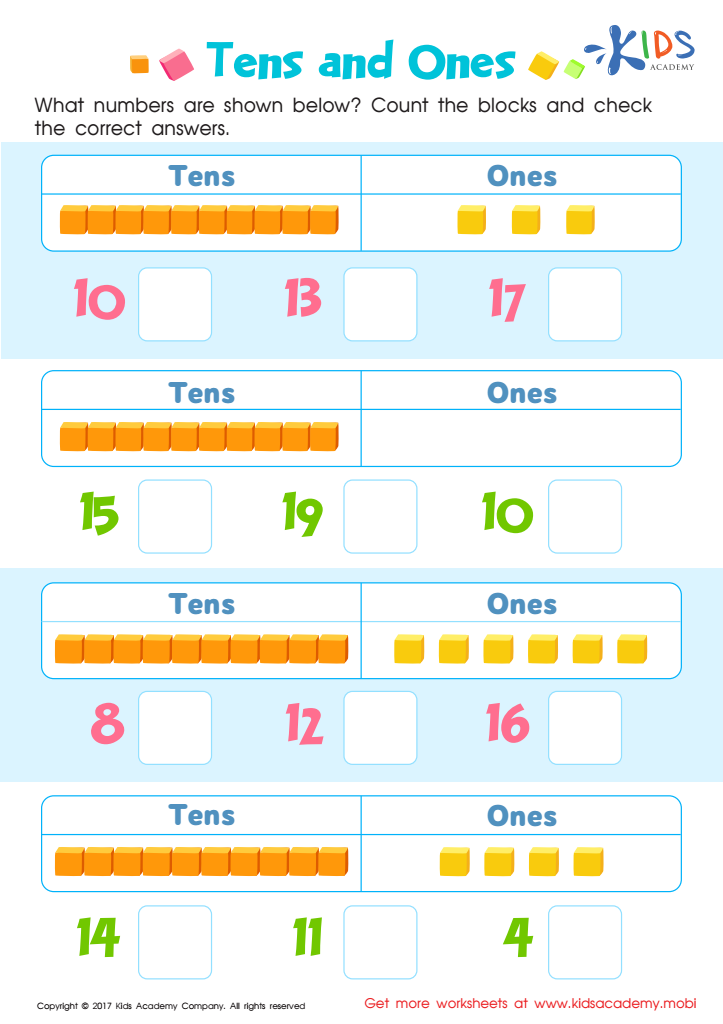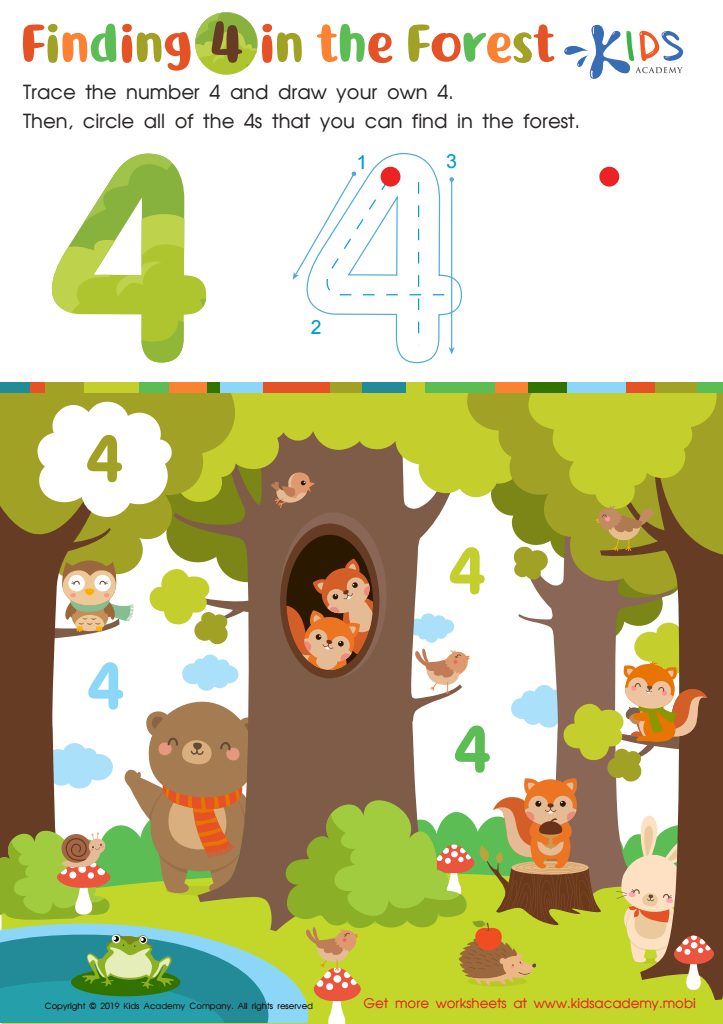Basic math practice Normal Math Worksheets for Ages 3-9
4 filtered results
-
From - To
Discover a world of fun and learning with our Basic Math Practice Worksheets, designed specifically for children aged 3-9. These comprehensive, age-appropriate materials will help your kids develop essential math skills, from counting and number recognition to simple addition and subtraction. Each worksheet is thoughtfully crafted to engage young minds, making learning math an enjoyable experience. Perfect for providing extra practice at home or supplementing classroom instruction, our worksheets enable children to build a solid mathematical foundation. Help your child excel in math with colorful, interactive activities that transform learning into a delightful adventure.


Sort and Count to the Moon Worksheet


Pet Vet Appointment Time Worksheet


Tens and Ones Worksheet


Finding 4 in the Forest Worksheet
Basic math practice is crucial for children aged 3 to 9 due to its foundational role in cognitive development and future academic success. At this formative age, young minds are exceptionally receptive to new information and skills, and early math skills lay the groundwork for more complex mathematical concepts they will encounter later.
Engaging in normal math practice helps children develop critical thinking and problem-solving abilities. It promotes logical reasoning, spatial awareness, and the ability to recognize patterns—all important cognitive skills that extend beyond mathematics. Additionally, understanding basic math like counting, number recognition, addition, and subtraction builds confidence, reducing math anxiety later in their educational journey.
Furthermore, math is not just for school; it is used in everyday life. From calculating the correct amount of money to measuring ingredients for a recipe, numeracy skills are essential. Early practice helps children understand and appreciate the practical applications of math in daily activities.
For parents and teachers, fostering a strong mathematical foundation ensures that children are well-prepared for the structured learning environments of higher grades. By integrating fun and interactive math activities into a child's routine, educators and caregivers support a balanced developmental foundation, helping children achieve personal and academic growth.
Encouraging fundamental math skills in early childhood education not only enhances growth in related academic areas but also builds a child's overall confidence and curiosity in learning.
 Assign to My Students
Assign to My Students




















